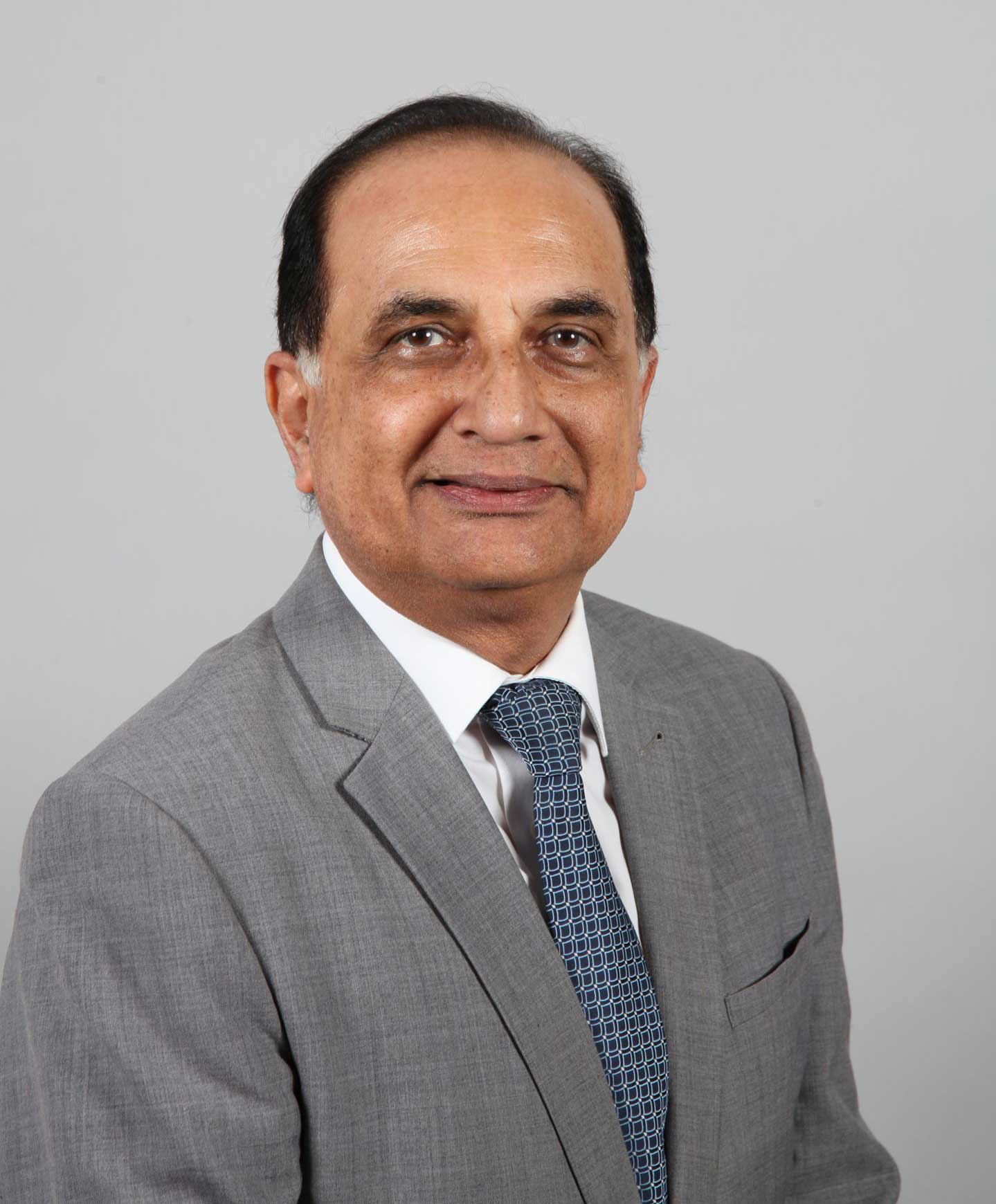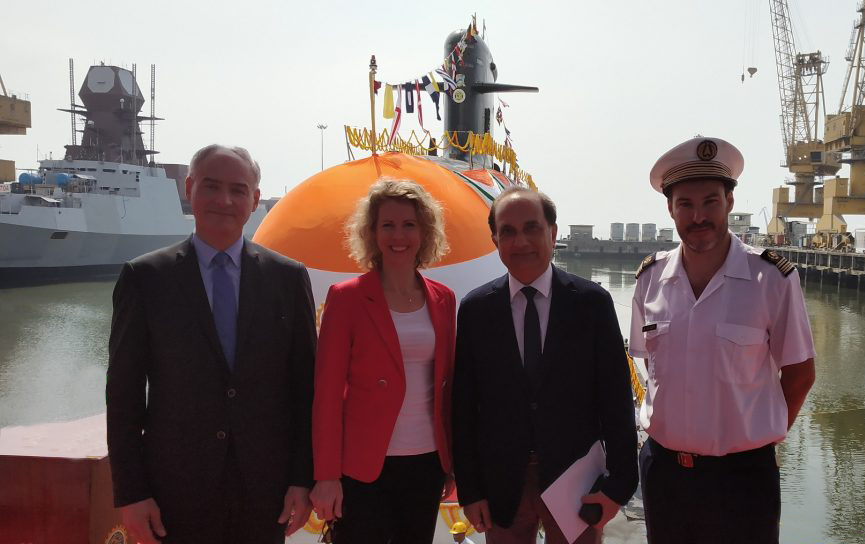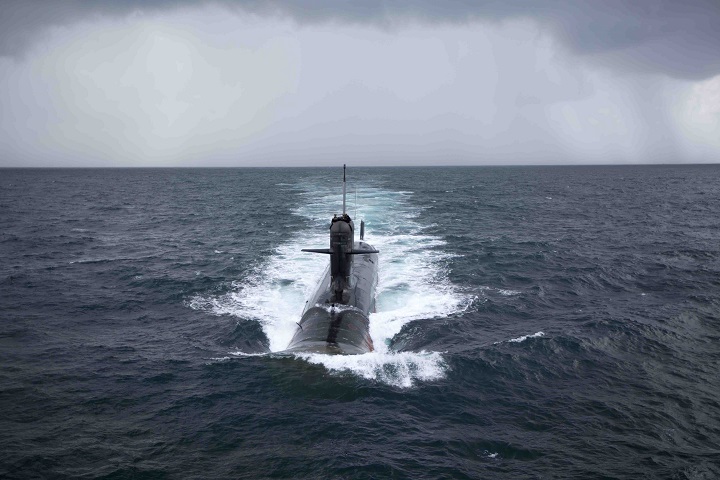India remains at the heart of Naval Group’s global strategy. The objective behind establishing Naval Group India has been to support Make in India activities for Scorpene class submarine. The Make in India initiative has paved way to a positive atmosphere to be accompanied by simpler decision making processes. In a tete-a-tete with P K Ghosh of Raksha Anirveda, Naval Group India Chairman and Managing Director Admiral RK Shrawat, spoke at length on Naval Group’s a decade of presence in India and how the company is collaborating with various DPSUs and privates OEMs to support submarine and other Make in India programmes. An excerpt:
RA. Naval Group believes in collaborative innovation and link its suppliers particularly SMEs in its overall growth story. How Naval Group has been able to do it over the last one decade of its operational presence in India?
 RKS. The main purpose of Naval Group India Pvt Ltd has been to support ‘Make in India’ activities for Scorpene class submarine equipment, through developing the Indian defence eco-system, as well as building design services with talented Indian engineers.
RKS. The main purpose of Naval Group India Pvt Ltd has been to support ‘Make in India’ activities for Scorpene class submarine equipment, through developing the Indian defence eco-system, as well as building design services with talented Indian engineers.
Naval Group’s role in India has not been merely assisting Mazagon Dock Shipbuilders Ltd (MDL) for submarine construction, but also to facilitate localisation. Even though there was no quantified indigenisation requirement in the contract, we did put in our best efforts to indigenise as many equipment as possible in the time constraints we had. This was the key reason for establishing Naval Group India Pvt Ltd (previously DCNS India Pvt Ltd) in Mumbai.
Naval Group, under patronage of MDL and Indian Navy was started its operations in 2009 by identifying more than 500 companies, visited and audited more than 100 of them. Based on such dedicated efforts, 22 were contracted under indigenisation programme. Beyond these 22, there are 21 more companies who are also considered fully qualified for further indigenous manufacturing and services. So we can boast of a strong and sound industrial ecosystem of 43 Indian companies, which is still growing keeping in mind future projects (not limited to submarines).
Also, it is good to remember that the infrastructures, equipment and manpower required to build the P75 Kalvari class submarines were not available in totality at the time of signature of the contracts in 2005. Such infrastructure had to be created at the expense of huge investment and was completed only in 2012 (wet basin, new cradle assembly workshop…) and trained workforce for key activities of submarine building (for example pressure hull construction) were re-created.
RA. Under an agreement, Naval Group is tasked to design the support system for the integration of cell-based Air Independent Propulsion (AIP) in P-75I submarines, being built for the Indian Navy? How crucial is the support system? Also, explain about contribution of Naval Group in India’s shipbuilding programme?
RKS. We are assisting Defence Research and Development Organisation (DRDO) to integrate their indigenous Air Independent Propulsion (AIP) in the Indian Kalvari class submarines built with Scorpene design during their forthcoming normal refits.

RA. How effective has the ToT to MDL been and how does MDL now compare to other international shipyards?
RKS. Through extensive Transfer of Technologies (ToTs) for welding, pipes manufacturing, outfitting, integration, etc. MDL is now the only shipyard in India who masters from A to Z the complete chain of submarine construction and it is at par with most other international shipyards manufacturing submarines.
It took a few years to re-acquire this knowledge because MDL had stopped producing submarines for over 15 years.
But it is very important that such expertise and qualified staff be preserved, nurtured and sustained through similar qualitative activities possible through regular orders. A few years of inactivity, as is already the case for some specific skills (pressure hull welding, etc.), will result in having to reinvest and go through a learning curve again.
One has to keep in mind that construction of submarine, which is actually the most complex machine ever built by man, is not like any other industrial venture.
The most cost effective way to maintain the skills in submarine construction and achieve excellence in performances is to gradually build upon what you have already achieved by making sure the shipyard is always busy constructing submarines with incremental additional performances.
RA. The Project-75 India for building six bigger and better submarines for the Navy under Strategic Partnership model has been witnessing new ups and downs and is expected to be fiercely competitive. As a participant, do you think Naval Group is better placed to win the contract? Please elaborate.
RKS. We are honoured to have received and responded to the Expression of Interest (EoI) for the Original Equipment Manufacturers (OEMs). The requirement of this new submarine programme are much more demanding than the previous one and to our knowledge no existing sea proven submarine on the market today can fulfill them all without passing through new design and development phase.

Having already achieved very high level of indigenisation during P75 project and the expertise derived from designing and constructing both latest generation of conventional and nuclear submarine of different size and tonnage, Naval Group is ready to propose a fully compliant solution with the minimum level of risk for Indian Navy.
Given the strategic partnership and the mutual working experience we have developed with Indian industries and shipyards, we would definitely be happy to propose a design fully compliant with the new specifications.
We, alongside the future strategic partner, are indeed in a sound position to greatly enhance the indigenous content of submarines constructed in India.
RA. Naval Group is number one (1) supplier to the French Navy; it also intends to accelerate the profitable development of its international activities. How has been the company’s progress report so far in terms of India?
RKS. India remains at the heart of Naval Group’s global strategy. The Make in India initiative has paved way to a positive atmosphere to be accompanied by simpler decision making processes. Hopefully, the new Defence Procurement Procedures (DPPs) to be issued shortly, will contribute to a more efficient and faster decision process.
Today DCNS is in discussion with the Indian Navy, for a number of future programmes which include service support to Indian Navy for F21 HWT, maintenance of P75 submarines, LPD project and the future indigenised aircraft carrier, among others. Naval Group believes that indigenisation and sustainable industrial ecosystem in India is the key to long term success for Indian defence industry. This caters to a win-win situation for both, Naval Group and India as a nation.
Having delivered successfully indigenously made eight (8) stealth raft mounted gear boxes for four anti-submarine corvettes (P28 project), being built at Garden Reach Shipbuilder and Engineers (GRSE) – Naval Group is now willing to cooperate with Indian companies to propose new generation Gearbox for future naval warships and platforms.
Naval Group is also proposing advanced simulators for submarine applications to Indian Navy. Such simulators are being proposed with high indigenous content and in partnership with Goa Shipyard Limited (GSL) which is not only a key shipbuilder but also centre of excellence for simulators.
RA. Apart from industry collaborations, Naval Group has tied up with Flinders University of Adelaide, Australia for industry 4.0 research partnership. What sort of benefits it’s going to provide to the defence industry? Any plan of such collaboration in India?
RKS. In support of Naval Group’s vision of Digital Shipyard, Flinders will conduct a range of research trials including applications of mobile machining robots and exoskeleton technologies. Such innovative technologies shall provide assistive manufacturing capabilities in shipbuilding for improved quality, safety and productivity. This ground-breaking ‘Industry 4.0’ research programme will help to establish a world-class advanced manufacturing capability at the Osborne shipyard in South Australia. The establishment of this partnership with Flinders University is part of Naval Group’s commitment in ensuring shipyards are able to access the early deployment of the most advanced digital and advanced manufacturing technologies available. This example is illustrative of Naval Group’s policy of establishing relationships with knowledge-centres and academia in the countries, where the group has committed presence. Such examples are being created in Singapore and other strategic client countries.
RA. Naval Group recently started construction on France’s newest digital frigate. The frigate is being developed in association with MBDA and Thales. With more than a decade of Naval Group’s presence in India and as a contributor to Make in India, will the company as a strategic move share its expertise and new technology with India in near future?
RKS. Naval Group’s new digital frigate is state-of-art frigate built on our rich experience and encompassing latest generation technologies such as digitalisation, advanced electronics, panoramic sensors, and propulsion systems etc. Based on such rich return of experience, Naval Group is in discussion with various India Shipyards to propose its latest generation frigates or special vessels or technical bricks to support them in their response to specific Request for Proposals (RFPs) if any.
RA. Naval Group takes various CSR activities and contributes towards five United Nations sustainable development goals of modern energy services, innovation, combating climate change, conserving resources for sustainable development, peaceful and inclusive societies and justice for all. How far Naval Group India is contributory to this. Your take?
RKS. Naval Group is already certified to be at “Advanced Level” in the UNGC Programme, and Naval Group India as its wholly – owned subsidiary, is fully integrated in providing support to our Group’s CSR strategy. We have considered the principles of UNGC to be one of the major factors in determining our CSR goals, in conjunction with the current National Objectives of India. We have participated in National Mission to Clean Ganga in 2017, Prime Ministers National Relief Fund in 2018 and the Naval Welfare Fund Trust in 2019. This emphasises our commitments to sustainable development in line with national interest and fundamental global objectives.









